Category: Cardinal Quarter
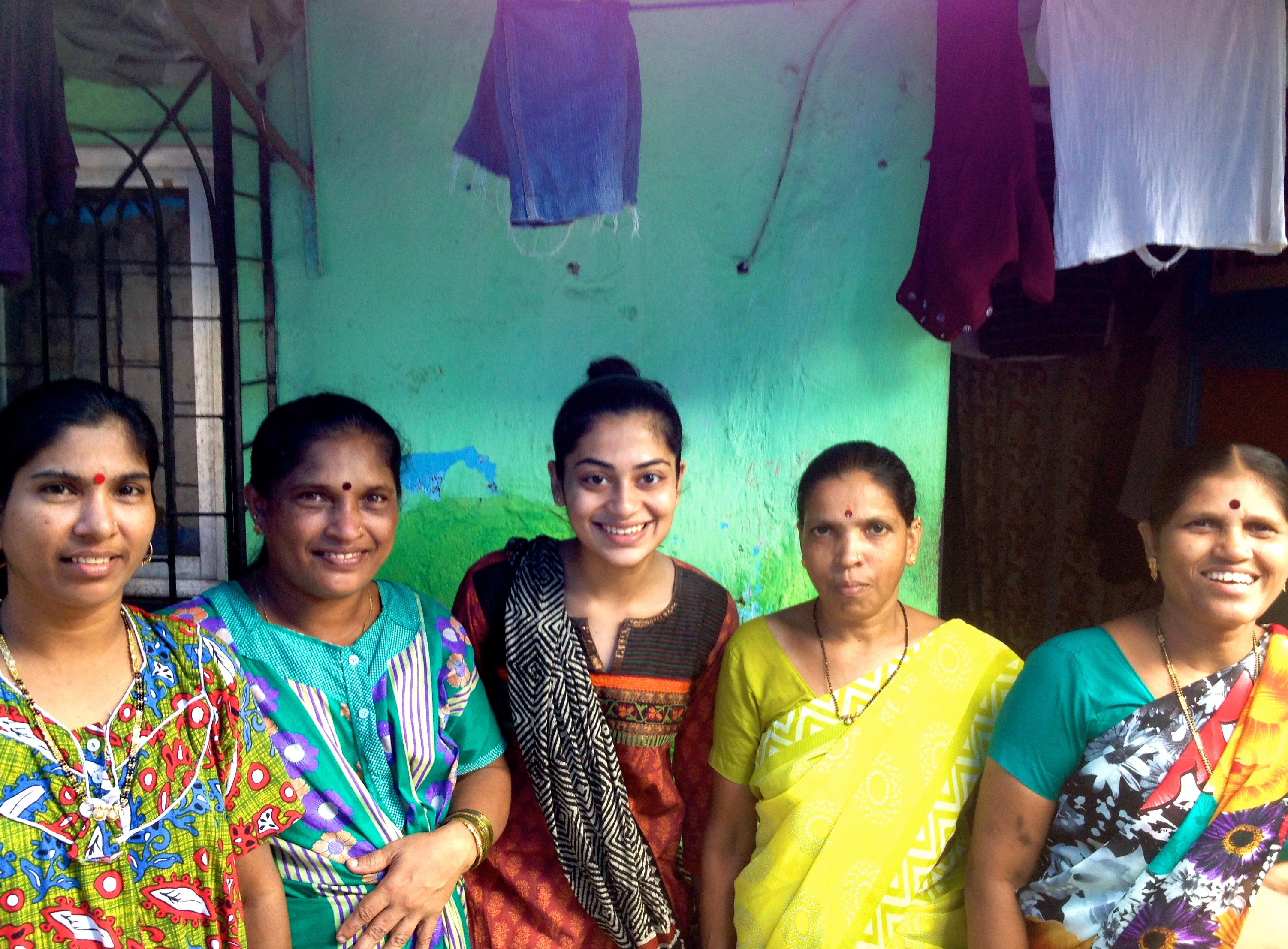
From heart to heart and hut to hut
By Apurva Khedagi, ’15 (Human Biology)
During my Haas Center fellowship I worked alongside the NGO Sneha in the Kandivali slums, leading group meetings on preventable diseases. Together with the Kandivali women, we developed simple solutions.
As I helped women make hairpins and played with their babies, I grew close to them. Due to these relationships, my fellowship’s goals were easier to accomplish. We discussed ways to take utmost advantage of their current health care resources and devised measures they could implement to address preventable diseases. We displayed those innovative, simple solutions on posters across the slum alleys. I saw that if given the chance, all individuals possess power to take responsibility for their own health.
My relationships with the women and my drive to remedy malnutrition led me to return to Mumbai this year to tackle this issue through a research intervention project, the UAR Senior Synthesis. Now, as I pursue a career in medicine, I cannot wait to continue on this learning journey.
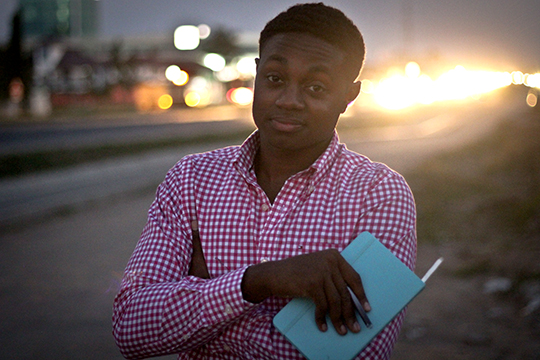
UNICEF Tanzania reflections
By Brandon Hill, ’16 (Public Policy)
This past summer, I served as an intern for UNICEF Tanzania as a Haas Center African Service Fellow. I helped to build a national social media campaign around violence against children called Ukuti Ukuti, filmed a United Nations documentary on early childhood education in Zanzibar, and assessed the impact of UNICEF programs in inland villages in Tanzania. Perhaps my most fulfilling experience was designing and launching UNICEF Tanzania’s first-ever Girl’s Empowerment Forum, partnering with other UN organizations to gather 50 primary school student-leaders to ask live questions of a panel of national policy makers and NGO leaders.
I had the opportunity to talk about development barriers with the leader of the opposition party in Tanzania, Professor Ibrahim Lipumba, Ph.D. ’83, who was also a co-founder of Stanford’s African Student Association in the 1980s. I also heard harrowing stories of leadership from Peter Temu, former economic advisor to the president of Tanzania, and listened to Romana, a young student, tell me how she single-handedly shifted gender norms in her rural village in the mountains of Iringa.
Having imbibed the Swahili culture and worked among the some of the most dynamic people I have ever met, I am energized about the future of East Africa and how I can play a role in its rise.
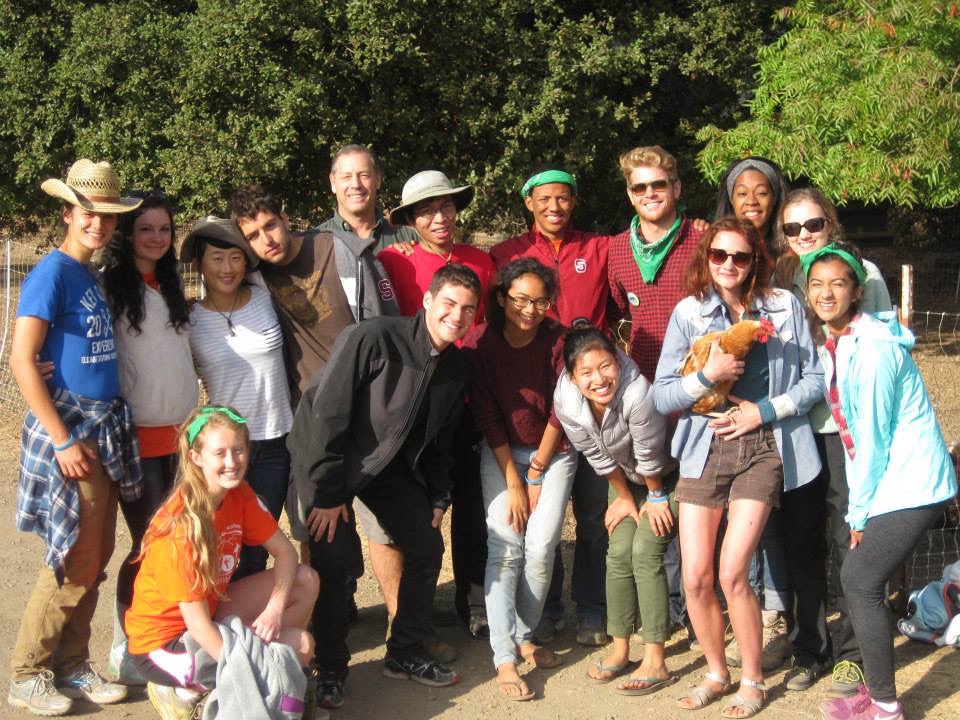
Food for filling
By Maria Deloso, ’15 (Earth Systems)
Growing food has an enormous impact on the environment, as around 40 percent of the world’s land goes toward agriculture. At the same time, obesity is a rising issue globally, partially as a result of more readily available cheap and unhealthy food options. When I began studying conventional and alternative food production systems, as well as what healthier meals might look like, it seemed to me that if people knew what was better for them and had the resources to do so, they would change for the better. However, this view failed to include issues of income inequality, racism, class, and worker and animal welfare.
While interning at the U.S. Department of Agriculture I was able to see the anti-hunger programs at work serving free government-subsidized meals to children in East Menlo Park. It was surprising to see that, even in Silicon Valley, some families were unaware of Federal food programs and others were sometimes unsure where their next meal would come from.
I ended up co-leading a Haas-sponsored Stanford Pre-Orientation Trip (SPOT) for incoming freshmen called, “Food and Social Justice.” Some of the trip’s activities included visiting a food justice organization planting community gardens and comparing two farmers’ markets targeting customers from differing socio-economic backgrounds, all while camping on a small, organic farm. It excited me to watch the SPOTlets engage with each experience and ask questions that I never knew to ask when starting out as a freshman. In addition, the SPOT trip gave me a space to continue reflecting on the many intersections between food and social justice and trying to better engage with my own privileged background — a constantly evolving process.
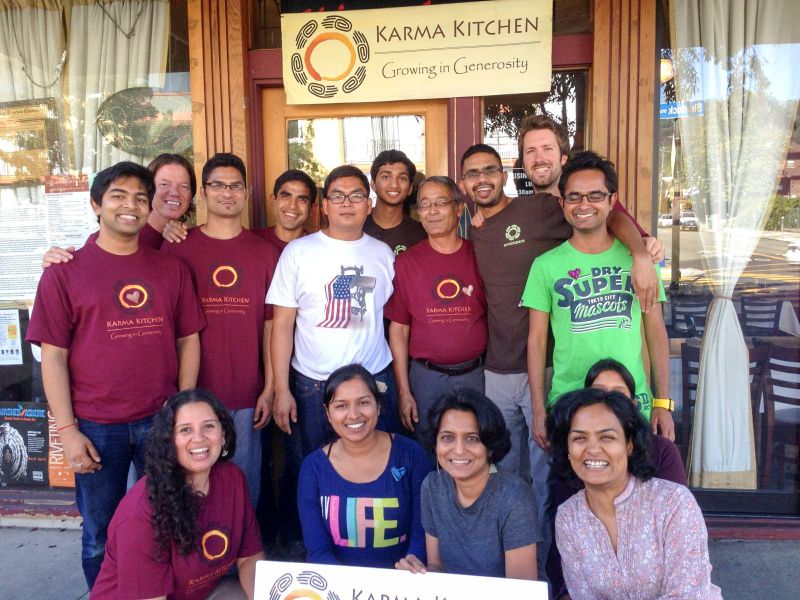
Kindness begets purpose
By Vishesh Gupta, ’15 (Computer Science)
When people hear I’m a CS major, they ask me what I did this summer expecting to hear about my late night coding exploits. When I instead tell them I spent the summer working with ServiceSpace, a group of wonderful people dedicated to generosity and kindness, I get quizzical looks. What does that mean? How do you practice kindness for a summer?
One of my favorite things was random acts of kindness. I started small, leaving flowers or a nice note encouraging people to pay it forward; one time my friends and I paid $70 between us for another family’s dinner at a restaurant. I realized that I was training my kindness muscles, and soon suggestions would come from somewhere inside me that the guy in a wheelchair would appreciate being pushed up the hill or a homeless person on the street could really use some lunch.
I experienced an inner transformation. I came into the summer lost and without purpose, living in a space of fear and stress that I wouldn’t ever “make it” in this seemingly cutthroat world. However, every smile I left behind for someone started changing my perspective — instead of acting from the fear of scarcity, I started seeing that the world was truly abundant — there was enough for everyone, and I just needed to trust in the generosity of others. Slowly, I recharged my soul batteries and I’m back now for what I hope will be a very different year of spreading kindness.
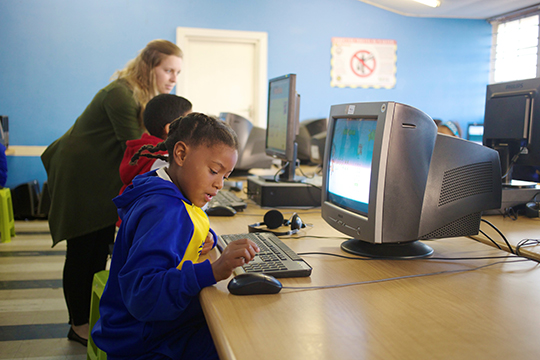
Computers to power learning in Cape Town
By Morgan Abbett, ’15 (Environmental Engineering, African Studies, and coterm M.S. Environmental Engineering and Science)
Across South Africa, mathematics test scores, secondary school matriculation rates, and youth employment rates are troublingly low. These statistics are, in part, the result of schools’ failure to teach students useful skills and provide personalized education. That is where computers can help. Through Stanford Engineers for a Sustainable World, I have worked for the past year to design a technology center at Parkwood Primary School in Cape Town, an underfunded public school that does not have a long-term computer space or program. Our team is working to build an effective, sustainable technology solution at Parkwood that will improve academic performance and propel students towards greater success in school and future employment. In addition to serving students, the center will provide computer access and training for teachers, parents, and other community members.
Thanks to an African Service Fellowship provided by the Haas Center, I spent several months in Cape Town designing the building, creating the program’s organizational model, teaching computer literacy classes, and working with our partners, an educational enrichment nonprofit called Bottomup, and a South African coding academy called iXperience. The next step is fundraising for the construction of the center. For more information please feel free to reach out to Stanford Engineers for a Sustainable World.
